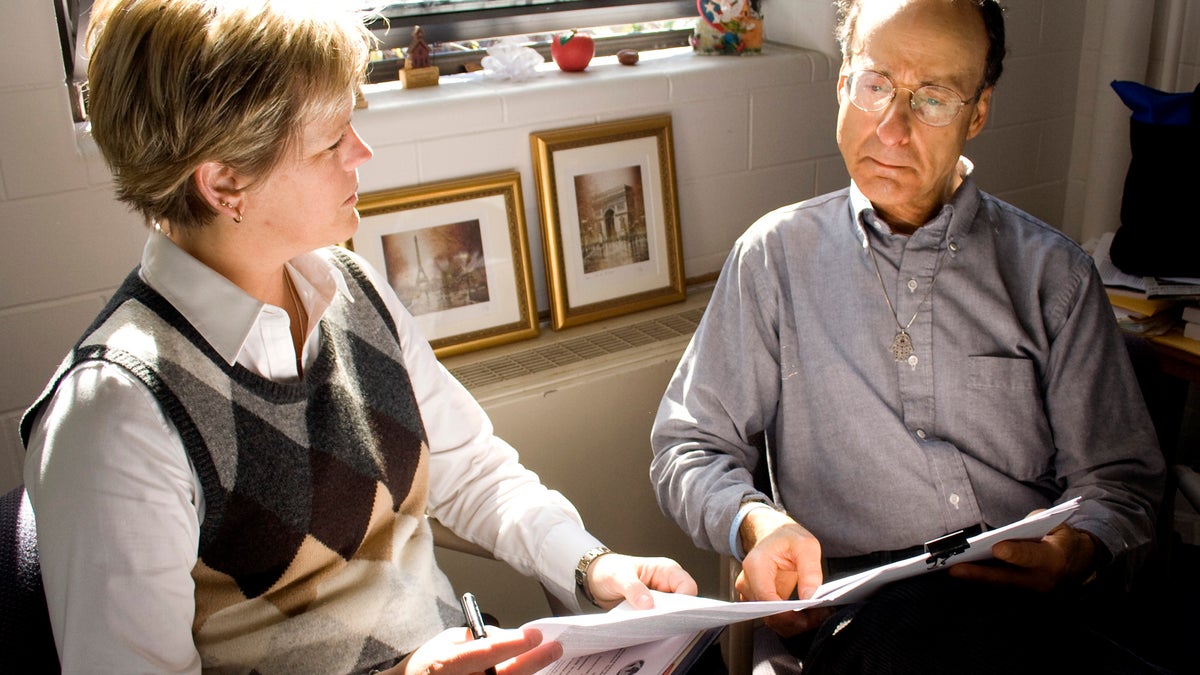Cyberbullying hits LGBT youth especially hard
One in two lesbian, gay, bisexual, or transgender youth report being cyberbullied about their sexual identities, according to a new Iowa State survey of 444 youths.

We all have coming-of-age bullying stories.
Mine started in junior high, when I was called a "sailor's dream" by the same boys who ogled me after that glorious summer before 9th grade, when you-know-what finally sprung forth. Then a new kind of torment began, and when I rejected the hot football quarterback, the lesbian rumors flew.
That was the mid-'90s, when hardly anyone even had e-mail. So what's it like in the age of Facebook, sexting, and the ability to taunt and be taunted 24-7? And moreover, what's it like for the kids who are actually lesbian, gay, bisexual, or transgender (LGBT)? (Full disclosure: I work as a volunteer with LGBT youth.)
A recent Iowa State University study surveyed 444 youth ages 11 to 22, including 350 self-identified non-heterosexual subjects and 94 people who identify sympathetically with LGBT youth, often called straight allies. The study found that 54 percent of these youths report being cyberbullied within the 30-day period prior to the survey--either about their sexual identities or for their identification with LGBT people. The next highest percentage is among females, 21 percent of whom report being cyberbullied about their gender, Warren Blumenfeld, assistant professor of curriculum and instruction at Iowa State University, tells me.
"There's a saying that we've now changed to read, 'Sticks and stones can break my bones, but words can kill,'" Blumenfeld says. In the school's statement, he adds:
Especially at this age--pre-adolescence through adolescence--this is a time when peer influences are paramount in a young person's life. If one is ostracized and attacked, that can have devastating consequences--not only physically, but on their emotional health for the rest of their lives.
Cyberbullying is considered attacks that include electronic distribution of humiliating photos, dissemination of false or private information, targeting youth in cruel online polls, and other types of online harassment.
Among the LGBT respondents, 45 percent report feeling depressed as a result of being bullied, 38 percent embarrassed, and 28 percent anxious about simply going to school. One in four report having suicidal thoughts. (Less than two months ago, a teenage Irish immigrant did kill herself in a case that has been linked to cyberbullying.)
"One of the things we found is that the LGBT students really want to make a difference," says Robyn Cooper, a research and evaluation scientist at Iowa State's Research Institute for Studies in Education. "They want their stories told. They want people to know what they're going through, but they don't want the repercussions of being bullied."
More than half report being afraid to tell their parents about being bullied because their parents might restrict online access, which (ironically) Blumenfeld says is often the "lifeline to the outside world" for many young LGBT students who have been ostracized by their peers at school.
Moreover, 40 percent of the non-heterosexual respondents say their parents wouldn't believe they were being cyberbullied, while 55 percent report that their parents couldn't do anything to stop it and 57 percent said they didn't think a school official could help either.
"One of the strategies coming out of this study--since respondents expect and want their peers to step in more--is that we should find ways on our campuses to empower young people to speak up and act as allies," Blumenfeld says.
The study appears in the LGBT-themed issue of the International Journal of Critical Pedagogy, due to be released March 15. The ISU researchers say they plan to author additional papers on their analysis from this survey as well as extend their research to a larger national sample to include face-to-face interviews and focus groups.

